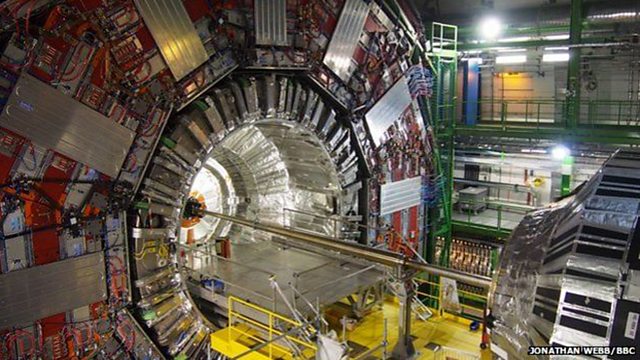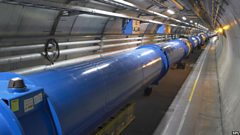
Large Hadron Collider
A date has been set for the reboot of the Large Hadron Collider to enable physicists to begin their search for the elusive dark matter we think makes up much of our universe
The Large Hadron Collider
The reboot of the Large Hadron Collider, to more than double its power to enable particle physicists to begin their search for the elusive dark matter we think makes up much of our universe had been delayed – but we now have a date for the switch on.
Drones to survey biodiversity
Drones have been getting a mixed reputation of late but these remote controlled aircraft are also of good for monitoring things that don’t move – Plants – or forests to be precise. And Kew Gardens in London is at the forefront of trialling drone tech. They have been pioneering the use of drones to map and locate vegetation to examine plant health and deforestation in detail, all around the world, and most recently in Peru, where they’ve examined the fragile ecosystems threatened by mining in the Lomas region. Sue Nelson was deployed to Wakehurst Place, Kew’s country outpost in the south of England for a drone maintenance run.
Non human robots
In the quest to create robots what should we be aiming for? Cinema would have it that making robots that look and perform as us. This week Blade Runner has its 25th anniversary release – where robots are all but indistinguishable from humans – so called replicants. But Dr Andy Philipedies centre for computational robotics and neuroscience at Sussex university argues we should be aiming to devise machines that are a long way from human. Adam Rutherford went to meet him
Sex in numbers
Now the average opposite sex couple between 16 and 44 reports having sex three times a month, the peak time for divorce is seven years after marriage. And a single instance of sex expends on average only 85 calories. These are just some of the statistics about sex featured in a new book by David Spiegelhalter, who’s the Winston Professor for the Public Understanding of Risk in the Statistical Laboratory at the University of Cambridge. We were intrigued so we invited him into the studio to tell us more. For a start, in most surveys men report having had more sexual partners than women, which he says isn’t statistically possible.
Ants on spacestation
Results just back from space when a colony of ants was taken up to observe how they behave in zero gravity. There are many, many examples of where humans have learned from animals and applied it to various technologies (Drones is an obvious example). By studying how groups of ants go about their lives, searching for food etc. Scientists can apply the principles of ‘collective search’ to robots.
John O’Keefe
John O’Keefe is a neuroscientist, a Professor at University College London, and the winner of the 2014 Nobel Prize for Physiology or Medicine. He won the Nobel Prize for his description of ‘place cells’ – that is, cells in our brains that fire up when we arrive in a particular location. The Norwegian husband and wife team, May-Britt and Edvard Moser, shared the prize with John for their discovery of so-called ‘grid cells’, and together, these specialised cells in our brains, place cells and grid cells, form a kind of internal GPS. Back in 1971, many scoffed at John O’Keefe’s idea of place cells. But it’s now widely accepted. His work on place cells formed a hugely important part of a much wider cognitive revolution that started in the sixties and has been gaining momentum ever since. Jim Al Kalili spoke to John O Keefe – was it a shock when he was told he’d won the prize?
3D printed ultrascope
3D printed ultrascope
James Parr, who founded the OSA (Open Space Agency), discusses the idea of amateur astronomers and 3D printing of his ultrascope.
Science Hour was presented by Gareth Mitchell with comments from ���˿��� Science Correspondent Jonathan Webb.
Producer: Adrian Washbourne
Last on
More episodes
Previous
Next
Clip
-
![]()
Large Hadron Collider
Duration: 02:09
Broadcasts
- Sat 4 Apr 2015 21:05GMT���˿��� World Service Online
- Sun 5 Apr 2015 10:05GMT���˿��� World Service Online
Podcast
-
![]()
Unexpected Elements
The news you know, the science you don't


